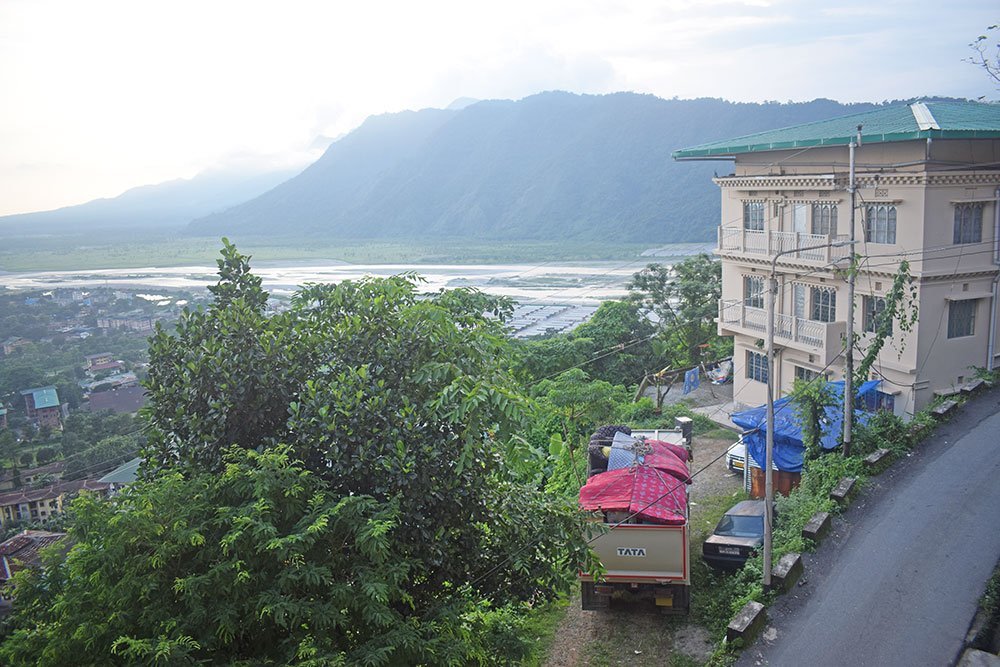… official records show more than 4,000 have left
Rajesh Rai | Phuentsholing
With Phuentsholing having spent almost half of the year under lockdown, many residents have left the once bustling town.
Although relaxation has come, the fact that many left has caused both panic and concern to the business community, who are worried about the local economy.
A shopkeeper, Namgay, said the road to recovery will be a difficult one for Phuentsholing.
“There are only a few of us here. Some went to Thimphu and started business there.”
Another resident, Phub Tshering, said while many left Phuentsholing, many are yet to leave.
“I think people who have migrated to Phuentsholing for better opportunities went back,” he said. “People without choices are here.”
He also said some left Phuentsholing for their children’s education.
“Phuentsholing is just a transit hub. The commercial hub is across the border. Earlier, the business that boomed in Phuentsholing was the entertainment centres with bars, which was not available across the border.”
However, it was not only those who could afford and have choice, who have left Phuentsholing. For some, leaving was the only option.
Ugyen Phuntshok, who completed his building construction in December 2020 had to leave because his wife is pregnant.
“It was not comfortable visiting hospitals due to the lockdowns.”
Two tenants of his building have also left.
It has been about 10 days since he advertised the vacant flats on social media, but none has come.
He said before the lockdown, people would book flats within an hour or two.
Ugyen Phuntshok said people are migrating to villages now.
He said one of his two tenants is a driver by profession and he is shifting with his friend, while his wife will return to the village.
Another is a teacher, who is now transferred to Punakha, Ugyen Phuntshok said.
“Some residents are scared and want to go to other places until the pandemic is over.”
Meanwhile, few people are also advertising shop spaces and apartments online.
Another Phuentsholing resident, Tenzin, left Phuentsholing right after the lockdown and returned to his home in Paro. Due to the prolonged lockdown, his boulder export business was impacted badly. He decided to find work in Paro.
“My family is still there in Phuentsholing,” he said. “I do some work here and send the house rent and expenses.”
Another resident, Sonam, said she left because she had to drop her son to a relocated school. She now rents a flat in Paro and will stay there until normalcy returns. The main reason her family left Phuentsholing is due to her son’s school and health.
“Many family men are now returning to Phuentsholing leaving their families in Thimphu and Paro,” Sonam said.
A woman, who operated a general shop at the heart of the town, said the worry for her ageing mother and son forced her to leave Phuentsholing. She left for Thimphu on July 11.
She said she paid rent with a 25 percent waiver and her two staff’s salaries until July.
“The business situation was also too bad,” she said. “There was only expenditure.”
These days, the woman is looking for a shop space in Thimphu and reselling her stocks to her friends.
Meanwhile, there are others who claim Phuentsholing still has many residents.
A restaurateur, Karma Tshering Dorji, said not even 30 percent of the people have left.
He said there are a lot of people in the Toorsa temporary settlement.
“The number may decrease after the school students are relocated.”
About 900 students and many teachers are being relocated to Phaduna, Punakha.
Official records also show not many have left.
After the town went into lockdown on April 17, records with Phuentsholing thromde show only 4,129 were facilitated to Thimphu, Paro, and Wangdue as of August 12. This also includes those who left the bordering town after they were stranded when the third lockdown started on April 17 this year.
The thromde executive secretary, Lungten Jamtsho, said 22,554 got vaccinated and more than 21,000 were mass-screened as of July 30.
“In both the cases, we have not included children below 12.”
Certain sections of the population are staying under self-containments and do not come to town.
Edited by Tashi Dema


